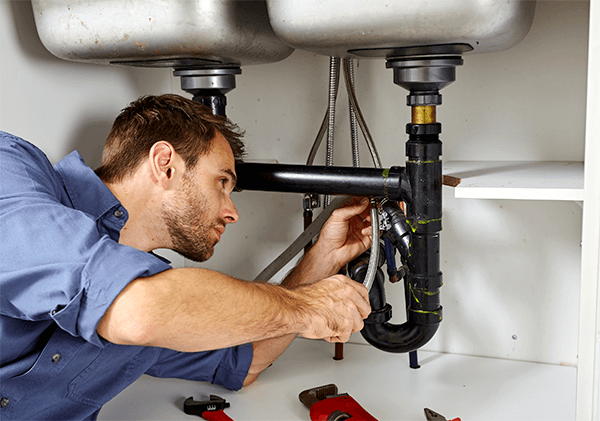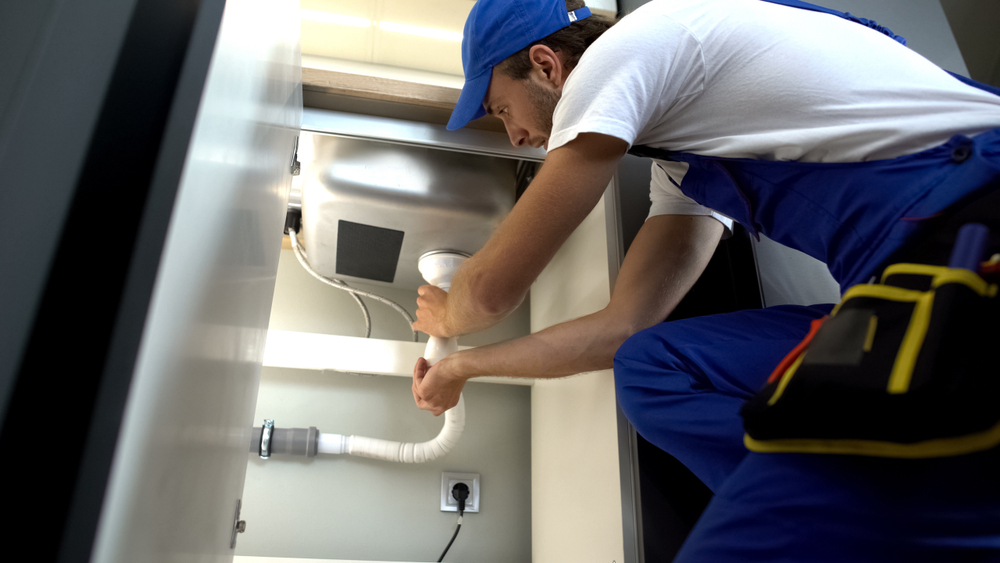The writer is making several good pointers on What to Do During a Plumbing Emergency in general in the content further down.

Plumbing emergencies can strike at any moment, triggering stress and anxiety and potential damage to your home. Whether it's a burst pipeline, a clogged up drain, or a leaking tap, recognizing just how to take care of the situation until an expert plumbing arrives can save you from additional issues. This post supplies crucial emergency situation plumbing tips to help you reduce damage and gain back control during a plumbing dilemma.
Shut off the Water System
The very first step in any kind of pipes emergency situation is to shut down the water. For local concerns, such as a dripping tap or commode, switch off the shutoff near the component. When it comes to a significant leakage or ruptured pipe, find your home's primary water shut-off valve and turn it off instantly. Knowing the area of these shutoffs ahead of time can conserve useful time throughout an emergency.
Address Little Leaks with Momentary Repairs
Little leaks can quickly become significant troubles if left uncontrolled. Utilize these momentary repairs until professional aid gets here:
- Pipeline Tape or Epoxy Putty: Apply waterproof tape or epoxy putty to temporarily secure the leakage.
- Rubber and Clamp Technique: Wrap an item of rubber or an old internal tube around the leak and secure it with a tube clamp or air duct tape.
- Containers or Towels: Place pails under the leakage to include water and avoid damage to floor covering or furniture.
- While these fixes aren't irreversible, they can aid reduce water loss and damage.
Unclog Drains Pipes Safely
A clogged drainpipe can be a discouraging and untidy issue. Here's just how to tackle it: - Utilize a Plunger: For sinks or commodes, a bettor can typically displace minor blockages. Guarantee you utilize the correct sort of plunger for the component.
- Hot Water and Dish Soap: For grease-related obstructions, pour a combination of warm water and dish soap away to break up the oil.
- Avoid Chemical Drain Cleaners: While appealing, chemical cleaners can create more damage than good, specifically to older pipes.
- If these approaches don't function, avoid making use of extreme pressure, as it may get worse the obstruction.
Take Care Of Overflowing Toilets
An overflowing commode can trigger prompt mayhem. Below's what you ought to do: - Quit the Water Flow: Get rid of the tank cover and press down on the flapper shutoff to quit water from going into the dish. Turn off the water system to the toilet if needed.
- Plunge Carefully: Make use of a toilet bettor to get rid of the obstruction, yet avoid hostile plunging, which can trigger spilling or further damage.
- Have the Spill: Use towels or a wipe to tidy up water quickly to avoid floor covering damages.
Turn off Your Hot Water Heater
In certain emergencies, such as a ruptured pipeline, it's a good idea to turn off your hot water heater. This prevents overheating or damages to the system when water quits flowing. Shut off the power supply to the hot water heater (electrical or gas) and let it cool off to prevent possible hazards.
Briefly Quit a Ruptured Pipeline
A burst pipe can cause substantial water damage in minutes. To reduce the problem:
- Clamp or Cover the Pipeline: Use a pipe clamp, rubber, or duct tape as a momentary seal.
- Draw Away Water Circulation: When possible, divert the water into a bucket or basin to restrict damages to bordering locations.
- Maintain the Area Dry: Use towels or a wet/dry vacuum to remove standing water.
- Call a professional plumbing immediately to address the problem completely.
Take Care Of Frozen Pipeline Very Carefully
In chillier climates, frozen pipes are a typical emergency situation. If you presume an icy pipeline: - Shut off the Water: Turn off the primary water system to avoid a burst pipe.
- Thaw Slowly: Use a hairdryer, heating pad, or warm towels to thaw the pipe gradually. Stay clear of open fires or extreme heat, as these can harm the pipeline.
- Check for Leaks: Once the pipe is defrosted, look for fractures or leaks prior to transforming the water back on.
Avoid Further Damage
Taking fast action to minimize damages can conserve you time and money in the long run. Right here's exactly how:
- Relocate Valuables: Get rid of furniture, electronics, and various other products from the affected location.
- Usage Sandbags: For flooding scenarios, area sandbags around the location to redirect water.
- Shut down Electrical energy: If water has reached electric outlets or home appliances, turn off the electrical energy to prevent shocks or fires.
. Have an Emergency Situation Plumbing Kit
Prepare a fundamental plumbing emergency situation kit to take care of minor concerns successfully. Your kit needs to include:
- Flexible wrench
- Plumbing technician's tape
- Pipeline clamps
- Towels and rags
- A bettor
- Epoxy putty
- Bucket.
- Having these devices on hand can make a substantial difference in your capacity to handle emergency situations.
Know When to Call an Expert.
While quick fixes can aid briefly, particular plumbing concerns need prompt expert focus. Call a plumbing if:. - A ruptured pipe creates comprehensive flooding.
- Drains pipes or toilets remain stopped up regardless of your efforts.
- You discover relentless leaks or water pressure problems.
- Your hot water heater is dripping or malfunctioning.
- Promptly calling an expert makes certain the issue is dealt with properly and protects against further difficulties.
Verdict.
Plumbing emergencies can be frustrating, however with the ideal understanding and devices, you can manage the circumstance successfully until help shows up. By switching off the water supply, dealing with little leakages, and making use of short-term repairs, you can decrease damages and keep your home safe. Keep in mind, these ideas are short-lived solutions; always seek advice from an accredited plumbing professional to deal with the source of the issue. Prep work and fast reasoning are your best allies in any plumbing emergency.
Expert Tips for Emergency Plumbing Repairs
Plumbing emergencies can be incredibly stressful and inconvenient. Whether it’s a burst pipe, a clogged drain, or a leaky faucet, these common plumbing emergencies need immediate attention to prevent further damage to your home. But before you panic, it’s important to understand the basics of plumbing repairs and the steps you can take to address these emergencies. In this article, we will share some expert tips to help you navigate through these situations and minimize potential water damage.
Identifying Common Plumbing Emergencies
- Leaky pipes and faucets
- Clogged drains and toilets
- Burst pipes
- Low water pressure
- Water heater problems
Essential Tools for Plumbing Repairs
- Plunger: Useful for unclogging toilets and drains
- Adjustable wrench: Needed for tightening or loosening nuts and bolts
- Pipe wrench: Ideal for gripping and turning pipes
- Tape measure: Necessary for accurate pipe measurements
- Plumber’s tape: Helps create watertight seals
Understanding Emergency Plumbing Services
Emergency plumbing services are designed to provide immediate assistance for unexpected plumbing issues that can cause significant damage to your home, business, or health. These services are typically available 24/7 and are staffed by experienced plumbers who can quickly diagnose and repair a wide range of plumbing problems.
When a plumbing emergency strikes, time is of the essence. Whether it’s a burst pipe flooding your basement or a gas leak posing a serious risk, emergency plumbing services ensure that help is just a phone call away. These professionals are equipped with the tools and expertise to handle any situation, minimizing damage and restoring your plumbing system to proper working order.
What Constitutes a Plumbing Emergency?
- Burst pipes or water supply lines: These can cause extensive water damage and need immediate repair to prevent flooding.
- Gas leaks or suspected gas leaks: Gas leaks are extremely dangerous and require prompt attention to avoid potential explosions or health hazards.
- Sewer backups or overflows: These can lead to unsanitary conditions and significant property damage.
- Clogged drains or toilets causing water to overflow: Overflowing water can damage floors, walls, and other structures.
- Leaks or water damage causing structural damage: Persistent leaks can weaken the structural integrity of your home or business.
- No hot water or heating: A lack of hot water can be more than an inconvenience, especially in colder months.
Common Causes of Plumbing Emergencies
- Aging or corroded pipes: Over time, pipes can deteriorate, leading to leaks or bursts.
- Improperly installed or maintained plumbing fixtures: Faulty installations or lack of maintenance can result in unexpected failures.
- Tree roots or other debris infiltrating your sewer line: Roots can grow into pipes, causing blockages and backups.
- Frozen pipes or water supply lines: In colder climates, pipes can freeze and burst, leading to significant water damage.
- High water pressure or sudden changes in water pressure: Excessive pressure can strain pipes and fixtures, causing them to fail.
- Natural disasters such as floods or earthquakes: These events can disrupt your plumbing system and cause severe damage.
Steps to Minimize Water Damage
- Locate the water shut-off valve: Knowing where the valve is can help you quickly cut off the water supply to the affected area.
- Turn off the water heater: If there’s a risk of water coming into contact with the heating element, make sure to turn off the water heater to avoid potential accidents.
- Open faucets and drain pipes: By opening faucets and drain pipes, you can relieve pressure and empty any standing water.
- Collect and contain water: Use towels, buckets, or bins to collect water and prevent it from spreading to other areas of your home.
https://leecountyplumbingandwellservice.com/expert-tips-for-emergency-plumbing-repairs/

We had been shown that article on from a pal on a different web address. Sharing is good. Helping people is fun. Thanks a bunch for your time. Revisit us soon.
Further Details
Comments on “Immediate Solutions for Pipe Problems: Steps to Take Until Help Arrives”